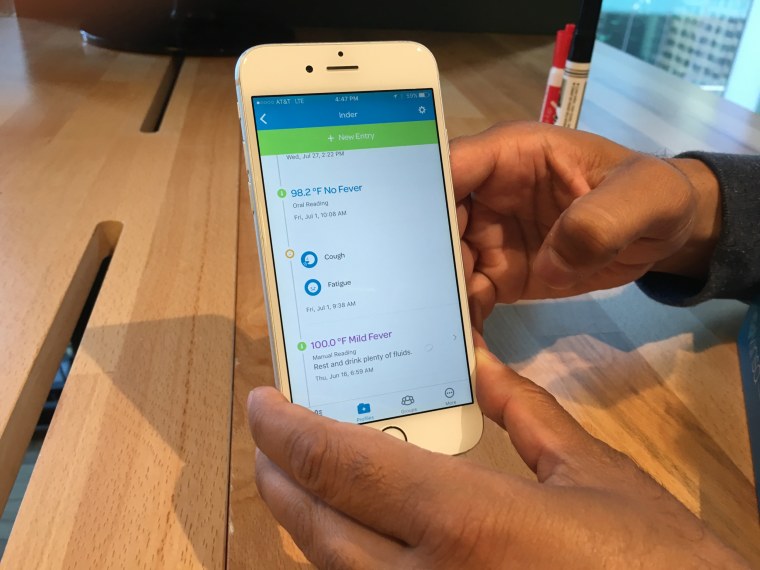Inder Singh envisions a day where looking at a map of your community's health is as common as looking at the weather.
He's now trying to make that goal a reality by putting smart thermometers developed by his company, Kinsa, into the hands of people around the world.
"I like to describe it as the health weather, being able to show people what is going around," Singh told NBC News during a visit to Kinsa's San Francisco Office.

The San Francisco-based company is launching a new program aimed at helping people in areas on high-alert for Zika. Clinics can apply for free Kinsa stick thermometers, which can then be distributed to patients.
The stick model plugs into a smartphone and using an accompanying app, records a person's temperature. They're able to leave notes, tag symptoms, and get basic medical guidance.
If a user opts in, their anonymized health data will go toward creating a group health map, letting people in a community get a real-time picture of illness.
"We think is interesting for any illness and it is particularly interesting in panic-stricken areas like Miami-Dade because as soon as you feel a symptom, you are going to be like 'What is this?' You have access to the power of the crowd, to compare notes," Singh said.

Dr. William Schaffner, an infectious disease expert at Vanderbilt University Medical Center, told NBC News he's "glad they're thinking of it" but doesn't see the free thermometer program "as a major step" right now when it comes to combating Zika.
"There are challenges with Zika," Schaffner said. "The first is 80 percent of the people who get infected don't become sick at all. Some of those people could conceivably infect a mosquito or their partner sexually. You don't have to be symptomatic to pass it on, so if you don't have any symptoms, that thermometer won't help you."
The 20 percent who experience symptoms may have a fever, aches and pains and pink eye, he said.
Kinsa has already deployed its health map through a program called Fluency, which has been working with parents at some schools to track the spread of illness in real-time.
Singh, who previously worked as the executive vice president of the Clinton Health Access Initiative, said he believes the app's ability to save medical history, coupled with the community data, can be a powerful tool to stop the spread of illness.
"[In the future], I hope the hardware is out there in mass quantities and I hope we can continue to give it away in certain cases so more people have access to it," he said.
Read More: Drugs Used to Fight Hepatitis, Worm Infections Might Stop Zika